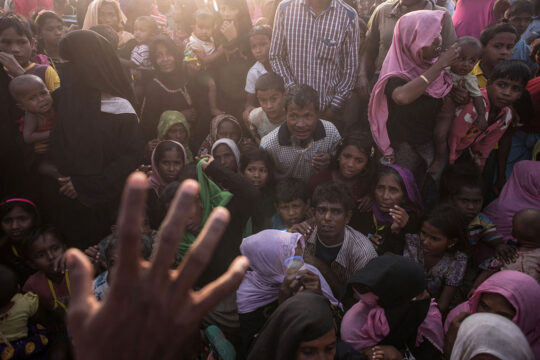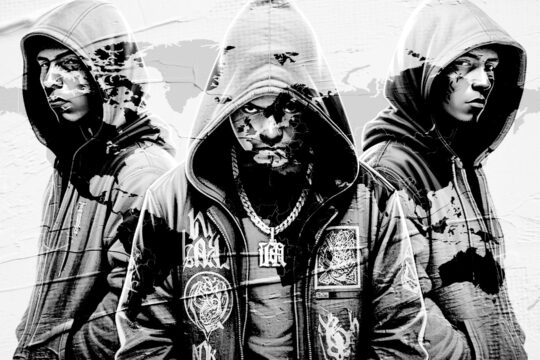A mob wielding weapons razed a mosque in northern Myanmar, state media reported Saturday, the second attack of its kind in just over a week as anti-Muslim sentiment swells in the Buddhist majority nation.
Myanmar has struggled to contain bouts of deadly religious bloodshed in recent years, with bristling sectarian tensions and rising Buddhist nationalism posing a steep challenge to the new government led by Aung San Suu Kyi.
On Friday villagers in Hpakant, a jade-mining town in northern Kachin state, ransacked a mosque "wielding sticks, knives and other weapons" before burning it down, according to the state-run Global New Light of Myanmar.
"The mob was unresponsive and entirely beyond control. The building was razed by the riotous crowd," the paper reported, adding that the rampage was sparked by a dispute over the mosque's construction.
No arrests have been made, it said.
A local NGO worker who visited the town Saturday told AFP security forces had been deployed to maintain order.
"Police are now controlling the area and it is stable," said Dashi Naw Lawn, from the Kachin Network Development Foundation.
The riot came eight days after a Buddhist mob destroyed a mosque in central Bago, forcing the Muslim community to seek refuge in a neighbouring town.
Tensions are also rising in western Rakhine, a state scarred by deadly riots in 2012 that have left communities almost completely divided along religious lines.
The region is home to the stateless Rohingya, a Muslim minority largely relegated to destitute displacement camps and subject to host of restrictions on their movements and access to basic services.
Suu Kyi, a veteran democracy activist who championed her country's struggle against repressive military rulers, has drawn criticism from rights groups for not taking swifter moves to carve out a solution for the ethnic minority.
Her government recently ordered officials to refer to the group as "people who believe in Islam in Rakhine State" instead of Rohingya -- a term whose use has set off protests by hardliners who insist the group are illegal immigrants from Bangladesh.
Yet the government's broad phrase has failed to placate local Rakhine Buddhists, who demand the group be referred to only as "Bengalis" and say they are preparing to rally in protest at the order on Sunday.
After a 12-day visit across the country, including troubled Rakhine, a UN rights investigator warned Friday that "tensions along religious lines remain pervasive across Myanmar society".
Yanghee Lee urged the country's new civilian government to make "ending institutionalised discrimination against the Muslim communities in Rakhine State...an urgent priority".



